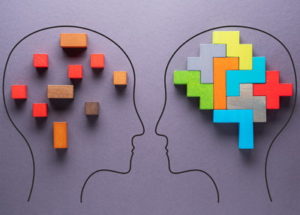 If you were to read the philosophical works of the likes of Immanuel Kant, Aristotle or others, you would be presented with work that puts forward the idea that what makes humans different from other animals is the ability to think in a rational manner in all circumstances. Quite whether that belief holds water is a matter of some debate, especially when it comes to discussing our approach to gambling. The very fact that human think that they are rational when they are not can lead to mistakes being made when betting, largely thanks to the notion of overconfidence.
If you were to read the philosophical works of the likes of Immanuel Kant, Aristotle or others, you would be presented with work that puts forward the idea that what makes humans different from other animals is the ability to think in a rational manner in all circumstances. Quite whether that belief holds water is a matter of some debate, especially when it comes to discussing our approach to gambling. The very fact that human think that they are rational when they are not can lead to mistakes being made when betting, largely thanks to the notion of overconfidence.
It is not uncommon for a human being to feel as though they have made a rational, sensible bet when, in actual fact, their decision making around their wagers has been anything other than rational. It is not uncommon for people to approach their betting with a sense that they’re making good decisions even though their decision making would be seen as questionable by anyone looking from the outside in. The war between the rational and the irrational is one that is difficult to win, but all you can do is consider what you can do more of to make increasingly rational decisions.
What The Psychologists Say
 Whilst the ancient philosophers might well be right in thinking that humans have rationality where other animals do not, that doesn’t mean that human beings are constantly rational. Indeed, there are some psychologists that think that humans are ‘uniquely irrational’ in their approach to numerous different aspects of life. A philosopher at the University of Paris, Justin E.H. Smith, wrote a book entitled Irrationality: A History Of The Dark Side Of Reason. In it, Smith argues that the idea of the Enlightenment, that rationality is the highest human value, is wrong.
Whilst the ancient philosophers might well be right in thinking that humans have rationality where other animals do not, that doesn’t mean that human beings are constantly rational. Indeed, there are some psychologists that think that humans are ‘uniquely irrational’ in their approach to numerous different aspects of life. A philosopher at the University of Paris, Justin E.H. Smith, wrote a book entitled Irrationality: A History Of The Dark Side Of Reason. In it, Smith argues that the idea of the Enlightenment, that rationality is the highest human value, is wrong.
According to Smith, humans are far from rational, with irrationality having defined much of our life and our history as a species. He says,
“The desire to impose rationality, to make people or society more rational, mutates … into spectacular outbursts of irrationality.”
This, of course, is a matter of concern for some. There is a fear that if we can’t impose rationality on society then it will descend into chaos. Animals, says Smith, cut to the chase, whereas humans engage in the irrational act of deliberation and hesitation, getting to the point that they become ‘paralysed by doubt and worry’.
The evidence is there to suggest that humans are, in fact, quite poor reasoners. Even something like the manner in which a question is asked can result in different answers to the same question asked with different words, such is the extent to which human beings can fail to think logically. Part of the criticism of humans as reasoners is that we don’t reason in the same way that computers do, but many believe that this is an unfair criticism, considering we invented computers to be perfectly logical, with any number of algorithms put in place to ensure that they are exactly that.
We Might Not Be As Irrational As It Seems
 There is some evidence to suggest that previously irrational thinking might not be as irrational as it seems. Imagine standing in front of a roulette table and seeing that the ball has landed on black six times in succession. What are you going to bet on next? The vast majority of people will say red, even though the very nature of a roulette wheel means that everything is reset to zero with each new spin of the wheel. The bet on red is known as the Gambler’s Fallacy, covered elsewhere on this site, but it is perhaps not as irrational as it seems.
There is some evidence to suggest that previously irrational thinking might not be as irrational as it seems. Imagine standing in front of a roulette table and seeing that the ball has landed on black six times in succession. What are you going to bet on next? The vast majority of people will say red, even though the very nature of a roulette wheel means that everything is reset to zero with each new spin of the wheel. The bet on red is known as the Gambler’s Fallacy, covered elsewhere on this site, but it is perhaps not as irrational as it seems.
The big problem with describing such decision making as irrational is that it fails to consider what is weighing up the options, which is the human brain. Humans do not think like computers, meaning that our decision making will fall short of the standards set by mathematics, for example. The brain will often ask itself the question, “What is the best outcome I can achieve with the tools I have?” This will lead to people taking the optimal course of action in the situation they find themselves in, including all of the constraints in place.
It is believed that the average brain can only really comprehend as many as four results at one time. As a result, viewing results of a roulette wheel four at a time would likely show black, black, black, red more often than black, black, black, black. Consequently, the brain will assume that a red is more likely to come up after a series of blacks than another black, even if the reality is that both possibilities are equally as likely. This is a failure of the system doing the calculating, rather than an issue with rationality.
How About When Betting?
 Regardless of which side of the aisle you come down on when it comes to human beings and rationality, the evidence is very much there that that goes out of the window when it comes to placing bets. Most gamblers will lose money relatively early on in their gambling experience, yet continues to place wagers regardless. That is, in and of itself, an illogical decision. In 2019, for example, the Gross Gambling Revenue across Europe was estimated to be in the region of €98.6 billion. In other words, gambling companies made nearly €100 billion in profit over the course of a year.
Regardless of which side of the aisle you come down on when it comes to human beings and rationality, the evidence is very much there that that goes out of the window when it comes to placing bets. Most gamblers will lose money relatively early on in their gambling experience, yet continues to place wagers regardless. That is, in and of itself, an illogical decision. In 2019, for example, the Gross Gambling Revenue across Europe was estimated to be in the region of €98.6 billion. In other words, gambling companies made nearly €100 billion in profit over the course of a year.
When you consider that gambling companies only make money when people lose their bets, that suggests that people have been losing money and continued to lose money over and over again. Does that sound like the decision making of a rational mind? In America, meanwhile, people spent more than $72 billion playing the lottery alone, which is remarkable when you think about the odds on winning the lotto. Whilst there are some gamblers that make money from placing bets, the vast majority fail to do so on any sort of regular basis.
As a result, the most obviously question to ask is why rational people would consistently get involved in something that results in them losing money on a regular basis. This is a question that has attracted the interest of those with a scientific mind time and time again, with many looking to solve the riddle. For those that do it in order to make money, there is an argument that gambling can be seen as rational, even when they don’t succeed. If gamblers are seen as those that enjoy taking risks, there is a degree of rationality in their decision-making.
Is Gambling An Irrational Activity?
 Given the topic, it is entirely far to ask whether the act of betting is de facto a demonstration of irrationality. It is felt by many that rational choices involve minimising losses whilst maximising an advantage. It goes without saying that placing bets, which may or may not prove to be winners, does not fit this brief of rationality. Someone going to buy a car that they think is worth £1,000 isn’t going to pay £2,000 for it, yet a bettor might put £2,000 at risk in order to win £1,000. That is not a rational way of thinking, in the eyes of most.
Given the topic, it is entirely far to ask whether the act of betting is de facto a demonstration of irrationality. It is felt by many that rational choices involve minimising losses whilst maximising an advantage. It goes without saying that placing bets, which may or may not prove to be winners, does not fit this brief of rationality. Someone going to buy a car that they think is worth £1,000 isn’t going to pay £2,000 for it, yet a bettor might put £2,000 at risk in order to win £1,000. That is not a rational way of thinking, in the eyes of most.
The expected value on virtually every type of gambling, from doing so at a casino to betting on sports online, is zero. Gamblers know that they will lose money over a period of time, simply because that is how the world of betting is set up. They know that the bookmaker’s margin and the House Edge are both arranged in order to guarantee a profit for the bookie and the casino respectively, yet they still put their money at risk on the off chance that the fates will see them winning money instead of losing it as they have previously.
You can add to that the fact that many players do not understand the probabilities of the bets that they are making. Do you know what the odds are of success when you’ve been dealt a specific hand whilst playing blackjack, for example? Many bettors will often fall foul of the Possibility and Certainty Effects, in which they under-weigh the probability of likely events and over-weigh the probably of unlikely events. As such, punters will often expect themselves to hit the jackpot on a slot machine, say, and will ignore the likelihood of losing all of their money over time.
Overconfidence Given By Irrationality

The lack of rationality in betting can often lead people to become over-confident. Individuals will sometimes over-estimate their own qualities and abilities, specifically in comparison to other people. This can be difficult when people are coming up against others in games like Texas Hold’em poker, but it can even have an influence when they’re coming up against a dealer or croupier. The fact that betting can be such a competitive environment means that over-confidence is never really a good thing, given the mistakes it can lead people to make.
Someone considering a bet on a football match might irrationally believe that they stand more chance of their bet being a winning one than a friend, based on nothing more than an over-confidence in their own ability in comparison to their friend. Rather than thinking sensibly and evaluating their bet, the very fact that it is different to their friend’s means that they mistakenly believe that it stands more chance of being a winner. There’s no question that this is an irrational thought process, yet it is a thought process that is triggered thanks to over-confidence.
If Someone Is Selling, Someone Else Needs To Be Buying
 As Daniel Kahneman observed in his book Thinking Fast and Slow, when one person is selling something, that means that someone else is buying. He was putting forward his theory in relation to the stock market, asking an investment manager who it is that buys the stock that he sells. One of the people involved must be wrong, given that the buyer thinks that they’re making the right decision in buying the stock and the seller thinks that they’re correct in getting rid of stock that they believe will no longer work out for them.
As Daniel Kahneman observed in his book Thinking Fast and Slow, when one person is selling something, that means that someone else is buying. He was putting forward his theory in relation to the stock market, asking an investment manager who it is that buys the stock that he sells. One of the people involved must be wrong, given that the buyer thinks that they’re making the right decision in buying the stock and the seller thinks that they’re correct in getting rid of stock that they believe will no longer work out for them.
The same sort of argument is true for the world of betting. Whilst this is especially the case when you’re looking at the world of exchange betting, it is also true of the battle between bookmaker and bettor. The bookie thinks that they’ve made the right call in the odds that they’ve given for a certain outcome, whilst the punter thinks that they’re going to win their bet. One of the parties is going to be proven wrong, but their lack of rational thinking allows them to accept such a proposition, instead convincing themselves that they’re right.
Avoiding Irrational Thinking
 Knowing that we’re likely to be irrational is one thing, but stopping ourselves from falling into that trap is something else entirely. When we enter into a casino or load up our favourite betting website, we need to do our best to think as rationally as possible. If you accept that the very act of betting is irrational and that we need to act rationally with the rest of our decision making, it becomes a task that is slightly easier to carry out. The first step on the road to success in this department is to try to distance yourself from what is happening.
Knowing that we’re likely to be irrational is one thing, but stopping ourselves from falling into that trap is something else entirely. When we enter into a casino or load up our favourite betting website, we need to do our best to think as rationally as possible. If you accept that the very act of betting is irrational and that we need to act rationally with the rest of our decision making, it becomes a task that is slightly easier to carry out. The first step on the road to success in this department is to try to distance yourself from what is happening.
That is to say, can you imagine yourself watching what you’re doing through a window? Giving yourself this mental distance from your decision making will allow you to contemplate whether the choices you are making are rational or not. Does the you on the other side of the window think that the bet that you’re placing is a sensible one? You need to find a way to provide yourself with this emotional distance when you’re weighing up what to do or else you will get caught up in what’s happening and make irrational, emotionally-driven choices.
